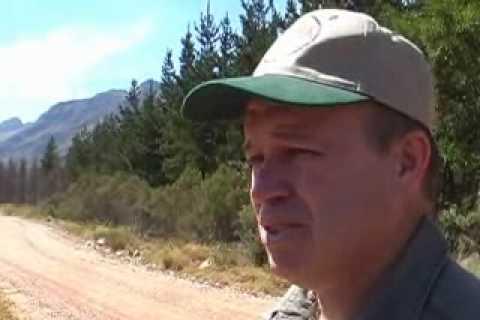The United Nations has designated 10 December as Human Rights Day. The date was chosen to commemorate the 10 December 1948 adoption and proclamation of The Universal Declaration of Human Rights, which states that recognition of the inherent dignity and of the equal and inalienable rights of all human beings is “the foundation of freedom, justice and peace in the world.”
Bulletin articles
On the occasion of Human Rights Day, we think it would be opportune to share a report conducted this year in Brazil: a research study that analyses the impacts of commercial mega-projects on human rights, focusing in this case on large-scale monoculture tree plantations in the northern region of the state of Espirito Santo.
One of the promises made by plantation companies to gain support – from the government and from local communities – is that they will create employment. What they fail to specify beforehand is the type of employment they will create and under what kind of working conditions, in terms of both salaries and workers’ health and safety.
At a time when water resources are becoming scarce and ever more threatened by global warming and climate change, a research carried out in South Africa becomes quite timely. After 70 years of monitoring in the Jonkershoek reserve, in the Western Cape Province, the study reveals the impact of monoculture tree plantations on underground water and streamflow. This is very important, given that plantations use significant amounts of water and have expanded greately in South Africa, a country with scarse water resources.
The FSC (Forest Stewardship Council)website has announced that the company Chikweti Forests of Niassa, which operates in the province of Niassa in northern Mozambique, is seeking the FSC “green label” for a 33,916-hectare monoculture tree plantation. According to the website, the pre-evaluation was carried out in November 2010, and the main evaluation is anticipated for February/March 2011. The FSC certification body in this case is Soil Association Woodmark, based in the United Kingdom.
In view of the upcoming meeting in Cancún of the Conference of the Parties to the United Nations Framework Convention on Climate Change, WRM is circulating an open letter addressed to the government delegations attending the meeting. It is aimed not only at denouncing the criminal inaction of governments, but also – and more importantly – at encouraging people to exert greater pressure on governments to force them to adopt the necessary measures to prevent the imminent climate disaster. The letter says:
Climate change as a process of modifications in the complex system of atmospheric phenomena (temperature, humidity, pressure, winds and precipitation) is nothing new for our planet. It has taken place over vast periods of time, as a consequence of volcanic eruptions and changes in solar radiation, atmospheric composition, the movement of continents, ocean currents and the earth’s orbit.
The Tenth meeting of the Conference of the Parties to the Convention on Biological Diversity (CBD) will be taking place in Nagoya, Japan, from 18 - 29 October 2010. This meeting provides the CBD with a good opportunity for responding to the increasing demand to come up with a serious definition of one of the most biodiverse ecosystems on Earth: forests.
In 2010, we face compounding biodiversity, food, fuel, economic and climate crises. The conservation and sustainable use of biodiversity is fundamental to addressing these crises, and charting a truly sustainable path for humanity.
The world’s forests face many threats. Parties to the CBD must take serious, immediate action on deforestation, addressing the drivers of deforestation, in line with the rights of Indigenous Peoples. Parties must not blindly accept the terms of market-based REDD (Reducing Emissions from Deforestation and Forest Degradation), and should establish a definition of forests in line with the objectives and principles of the CBD.
What is at stake?
Deforestation and climate change
The role of biodiversity in climate change policy is receiving increased attention: both how the loss of biodiversity worsens climate change and how the protection of biodiversity needs to be central to any effective adaptation or mitigation strategy. Parties must ensure that the CBD principles (e.g. precautionary principle, ecosystem approach, Indigenous Peoples’ rights) are upheld and applied in all strategies for combating climate change.
Industrial scale biofuels and bioenergy, with their new demands for wood, agricultural products and other plant biomass, are having serious and irreversible impacts on biodiversity, especially forests. Driven by overseas investment, large tracts of land are changing to bioenergy feedstocks in the global south, undermining the rights of Indigenous Peoples, food sovereignty, agrarian reform and land rights.

